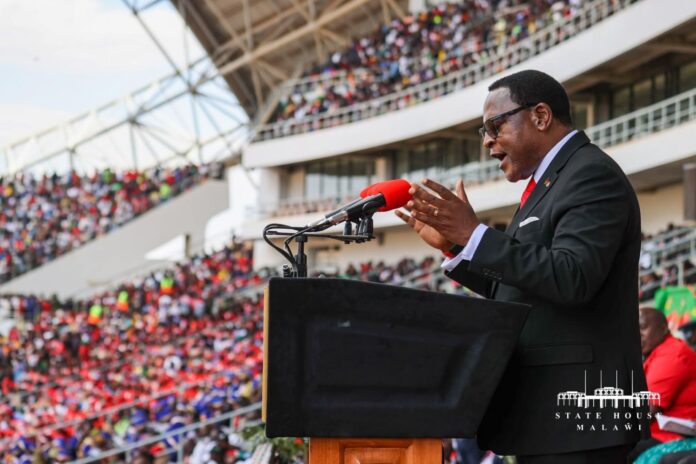By Burnett Munthali
Today, Sunday, 6 July 2025, Malawi commemorates 61 years of independence.
It is a day marked by speeches, flags, songs, and official ceremonies.
But beneath the surface of celebration, the question that should trouble every patriotic Malawian is this: What is the true definition of independence?
Is independence merely the lowering of the British flag in 1964 and the raising of our own black, red, and green?

Is it simply having a Malawian president in State House and a national anthem sung in Chichewa and English?
Or is it about something much deeper — something that affects the daily life of every citizen?
True independence is not defined by flags, borders, or political speeches.
It is the ability of a nation to stand on its own — economically, socially, and politically.
It means a country where the people have access to food, money, business, and opportunities without begging or depending on others.
In today’s Malawi, that kind of independence remains elusive.
Sixty-one years after freedom from colonial rule, Malawians are still struggling — not only to survive, but to find dignity and justice.
Many young people roam the streets with degrees in hand, searching for non-existent jobs.
Women continue to walk long distances to access healthcare that barely functions.
Farmers toil the land with outdated tools and no access to markets.
Vendors hustle day and night just to buy a bag of maize or afford school fees.
Is this what our founding fathers imagined in 1964?
Today, political violence still haunts us.
Supporters of different parties attack each other during rallies and funerals.
Social media is used to spread hate instead of building dialogue.
Our elections are tense and divisive, with trust in electoral bodies weakening.
This is not freedom — this is fear disguised as democracy.
True independence also requires economic empowerment.
Yet Malawi remains heavily dependent on foreign aid, donor-funded projects, and imported goods.
We are not feeding ourselves.
We are not building industries that create jobs.
We are not investing in the future with seriousness.
Instead, leaders prioritize luxury cars and foreign trips while citizens queue for cheap fertilizer and subsidized sugar.
In a truly independent nation, the economy serves the people — not the elite.
Corruption continues to rob Malawi of its future.
Money meant for hospitals, roads, and schools is stolen by those in power.
Investigations drag on without justice.
Politicians accused of wrongdoing are protected instead of prosecuted.
The poor pay taxes, but they do not see the benefits.
How can we call ourselves independent when we cannot hold our own leaders accountable?
True independence must be defined by access to opportunities — in education, business, and innovation.
But in 2025, many Malawians still lack access to quality schooling, startup capital, internet connectivity, and reliable electricity.
The same challenges we faced decades ago still exist, only worse.
When a nation celebrates 61 years of freedom while most of its people are trapped in poverty, that celebration becomes hollow.
It becomes a performance rather than a reality.
It becomes a reminder of what should have been — and what still isn’t.
This Independence Day should not just be a festival of speeches.
It should be a day of truth-telling.
A day to admit that we have fallen short.
A day to commit — truly commit — to making Malawi work for every citizen.
Independence must be visible in the lives of ordinary people — not just in official ceremonies.
It must be felt in the price of food, in the dignity of work, in the safety of communities, and in the fairness of justice.
Malawi at 61 must be more than a celebration.
It must be a reckoning.
Because without economic dignity, social justice, and political accountability, we are not yet free.
We are simply self-governing dependents — and that is not independence.



